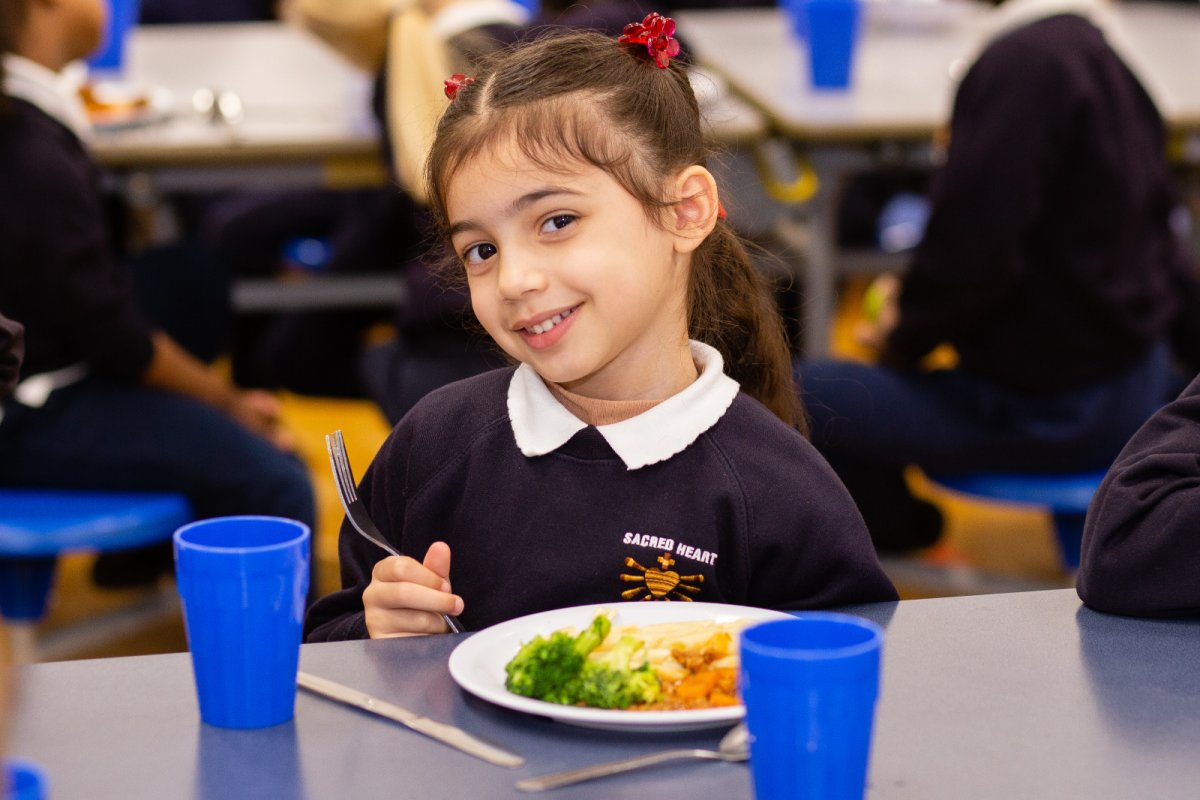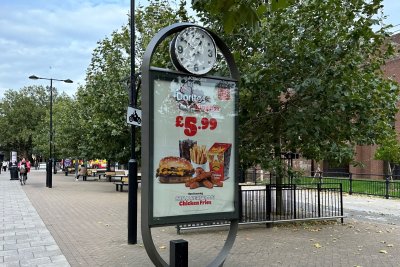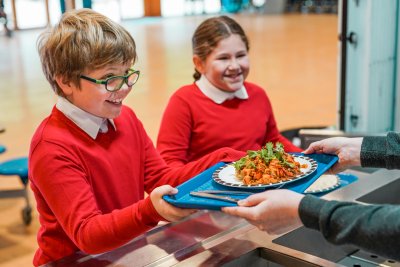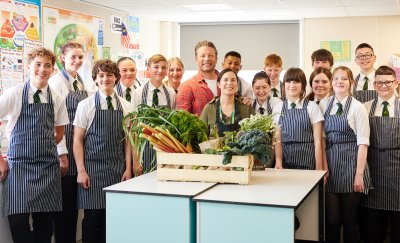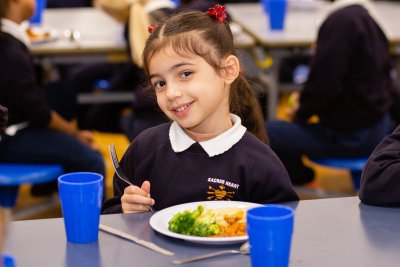 Enjoying a healthy lunch at Sacred Heart School, Battersea. Credit: Jon Goldberg / Children's Food Campaign
Enjoying a healthy lunch at Sacred Heart School, Battersea. Credit: Jon Goldberg / Children's Food Campaign
17 million school meals delivered in London as new research reveals social benefits
Funding from the Mayor of London has already supported 17 million meals to be provided to London's primary school children, as Child Poverty Action Group and the National Education Union reveal six major benefits of providing meals on a universal basis as experienced by London parents and schools staff. Children's Food Campaign responds.
More than 17 million primary school meals have been funded by the Mayor of London and delivered by London's boroughs and schools since the start of September, as a result of the £135m investment in supporting the capital's families and schools.
An estimated 1.4 meals each week are being funded by the Mayor as a one year emergency programme across the whole capital, at a rate of £2.65 per meal.
The Mayor of London, Sadiq Khan, said:
"I’m delighted that we have already funded more than 17m free school meals this term with hundreds of thousands of London’s primary school children benefitting every day. I know from personal experience how important these meals are and what a difference receiving a free nutritious meal can make to young lives, which is why I stepped forward with this unprecedented funding to help families during the cost-of-living crisis. The fantastic poem written by Ishall at Mandeville Primary School truly sums up the importance of these meals and I’m delighted that her class has today enjoyed a special meal that they have helped to prepare too. I will continue to do all I can to support families as build a better London for all.”
Children's Food Campaign Manager Barbara Crowther responded to the news saying:
"It is brilliant that across London's primary schools a hot lunch is now as much part of the core school day provided for every single child as chairs, desks, books and bathrooms. Every meal is helping children to concentrate and learn and is removing stigmatising means-testing. Funding and delivering 17m more meals to the capital's primary school children over the last term is no mean feat. We congratulate the Mayor and his team for their can-do vision and investment, as well as to all the London boroughs, the school leaders, teachers and catering staff who have pulled out all the stops to make this happen. However, we must go further to end the postcode lottery of school food entitlement, and keep holding our national politicians responsible for ensuring every child, no matter their age, background, family income or location, is able to access healthy, hot food at school."
The added social and inclusion benefits of universal approaches to school meals have now been documented in new research by the Child Poverty Action Group and the National Education Union published in a new report called The Universalism Multiplier. Researchers conducted surveys and interviews across two London boroughs with long established universal primary school meals services, talking to parents about effects on both school and home life, and to school staff about experiences of educating children. Their findings demonstrate impacts across six key areas:
- Improvements in financial and psychological security, especially for most disadvantaged families
- A virtuous cycle where nutrition supports attendance and attainment
- A reduction in stigma and anxiety or feelings of exclusion
- A reduction in school admin and bureaucracy, freeing up time and resources for more enriching activity and parent engagement for school staff
- Supporting better eating habits and communal dining experiences
- Multiplying benefits as financial security afforded by school meal entitlement frees up families to invest in addtional opportunities for their children.
A member of support staff in one Southwark primary school said:
"Pupils don't have to think about the payment of lunches, having lunch at school is just the norm. All chlldren sit down, there's no stigma and the socialisation when eating a meal is beneficial for all. Some families live in properties that don't lend themselves to family eating, universal school meals give that space for children to develop social skils."
A Tower Hamlets head teacher said:
"Universal free school meals means that the huge administrative burden of collecting and processing dinner registers has now gone. As a school we don't have to deal with dinner money debt, which is still the case for pupils and families in nursery where lunches are not provided free."
City Hall has also been running a "Love Your Lunch" campaign inviting primary schoolchildren to celebrate the programme with a piece of work in any medium with the theme "The best thing about school lunches is...". The competition was won by a year 5 pupil Ishall at Mandeville Primary School in Hackney.
Louise Nichols, Executive Headteacher of LEAP federation of schools in Hackney, said:
“Everyone at Mandeville Primary School is delighted that Ishall has won this great prize for her class. We think Ishall described very well how children feel about lunches in our schools. It has made such a difference to our school communities to have school meals paid for by the London Mayor this year and families are grateful that it is saving them so much money. For example one family I know with three children now have upwards of £1,500 extra in their family budget this year to pay for the rising costs of food, heating, childcare and many other things – this makes such a difference to all our families. As a school we love that we can be sure that every child in our schools receives a hot, freshly cooked nutritious meal every day especially during these winter months.”
Children's Food Campaign: Better food and food teaching for children in schools, and protection of children from junk food marketing are the aims of Sustain's high-profile Children's Food Campaign. We also want clear food labelling that can be understood by everyone, including children.
Sustain
The Green House
244-254 Cambridge Heath Road
London E2 9DA
020 3559 6777
sustain@sustainweb.org
Sustain advocates food and agriculture policies and practices that enhance the health and welfare of people and animals, improve the working and living environment, promote equity and enrich society and culture.
© Sustain 2024
Registered charity (no. 1018643)
Data privacy & cookies
